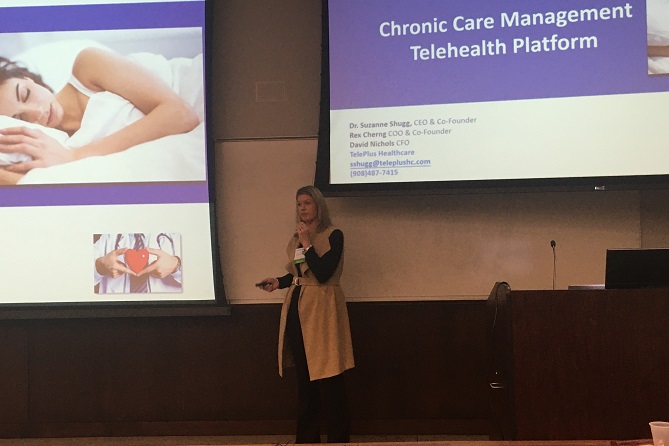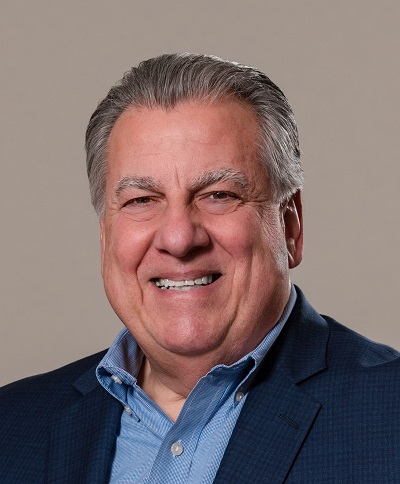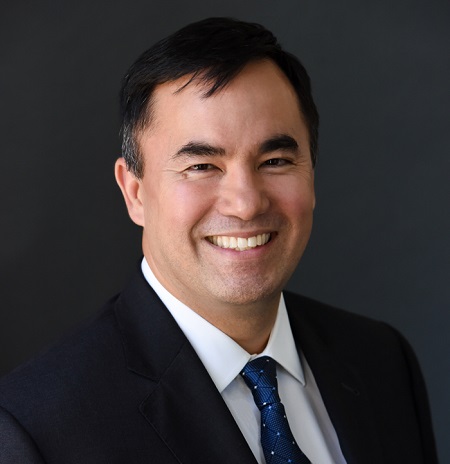New Jersey Startup TelePlus Offers Public Health Approach to Mitigating Coronavirus Pandemic
TelePlus Healthcare, a Summit-based startup focused on managing chronic health conditions to prevent the need for hospital admissions, has launched an all-out effort to help hospitals and government agencies manage the coronavirus pandemic.
NJTechWeekly.com spoke to Suzanne Shugg, TelePlus Healthcare’s founder and CEO, on Monday, about the company’s public health approach to COVID-19.
The startup’s methodology starts with education and telemedicine, where patients can check in and describe their current symptoms, learn about risks and be told what to do. Patients can also speak to a healthcare provider for recommendations or treatments via tablets, phones or computers.
Physician Education
In addition, TelePlus has created a physician education program, to train doctors on how to manage their patients’ COVID-19 infections. Those who participate will be given access to the company’s portal, which will enable them to manage their patients remotely. Through this program, TelePlus has been expanding the number of physicians who can meet the current needs of our sick population.
Shugg described the reasoning behind this approach. She started by referring to an NPR report, in which Richard Waldhorn, a pulmonary critical care physician who’s done research on hospital preparedness at the Johns Hopkins Center for Health Security, says that the federal government’s planning assumptions based on past flu pandemics suggest a surge in demand for intensive care that could range somewhere between 200,000 and 2.9 million patients, However, the total number of existing intensive-care-unit beds is about 65,000. So, by identifying the population at risk before they need to go to the hospital, and providing intervention, TelePlus hopes to the mitigate the demand for those beds.
To get started, the patient-centered protocol works like this: When in contact with TelePlus health providers, patients will be asked why they think they have the virus. Do they have a fever? Do they have a cough? What are their symptoms? “We’ll find out if they’ve done any recent travel or visited any recent meetings or conferences,” Shugg said.
If the answer is yes, “We ask specific questions about arrival, such as did they get an Uber to their plane or train, because this all needs to be documented so we can track all this stuff. We’ll ask about recent contact with an infected person. Do you know who this person is? What their address is? Where they work? We’d just be trying to create a picture so that we get all that information. If a person has a fever of over 100.5 degrees, that could indicate that they are getting into trouble.”
Using Remote Monitoring
Shugg said that they’d then work on immediately outfitting patients with Bluetooth-equipped thermometers and pulse oximeters, which measure blood oxygen saturation.
One of the differences between the TelePlus approach and single-contact hospital or clinic visits is that, once the remote devices are issued, the company and its associated doctors will be able to monitor patients multiple times a day for two weeks. The patients are not left on their own, as would be the case after a one-and-done visit. Shugg said that this approach would help prevent the spread of the disease and minimize deaths.
“We have telemedicine two-week management protocols to monitor temperature, pulse ox, location and contacts — developed based on the data from Wuhan, where the pandemic first started. We ask five questions daily, and the patient takes their temperatures and pulse ox every four hours. Patients can take these measurements more often if they don’t feel well.” TelePlus has partnered with epidemiologists and infectious disease doctors who are experts in this field, Shugg said.
“We know from the data from China that when people get in trouble, their pulse ox begins to drop.” Suzanne Shugg, TelePlus Healthcare
“We know from the data from China that when people get in trouble, their pulse ox begins to drop.” Also, their temperature rises. They develop a SARS-like syndrome, she said, which involves the lungs. If they can predict who is going to be at risk for the SARS-like syndrome, there are certain blood pressure medications — called “angiotensin-converting enzyme inhibitors” (ACE inhibitors)and “angiotensin II receptor blockers” (ARBs) — that limit the harm that SARS does to the lungs, and these drugs could be used to help these patients, Shugg said.
The company is developing algorithms to scale this approach and integrate into electronic health records. It’s ready to do so, but needs some funding, she noted.
The TelePlus COVID-19 plan includes hospital protocols, telemedicine protocols and a database for case tracking and quarantine tracking. “We have created preventive guidelines, management protocols and treatment recommendations to help in this effort,” said Shugg.
“In addition, we are looking at patients’ past medical histories, medications as well as location reporting to help monitor the spread of the virus and inform people of their risk, given their medical conditions. TelePlus is fortunate to have experts who have specialized experience in epidemiology and infectious disease. We have also examined the data from, Wuhan, the city where the virus was first identified, to better manage our population.”




